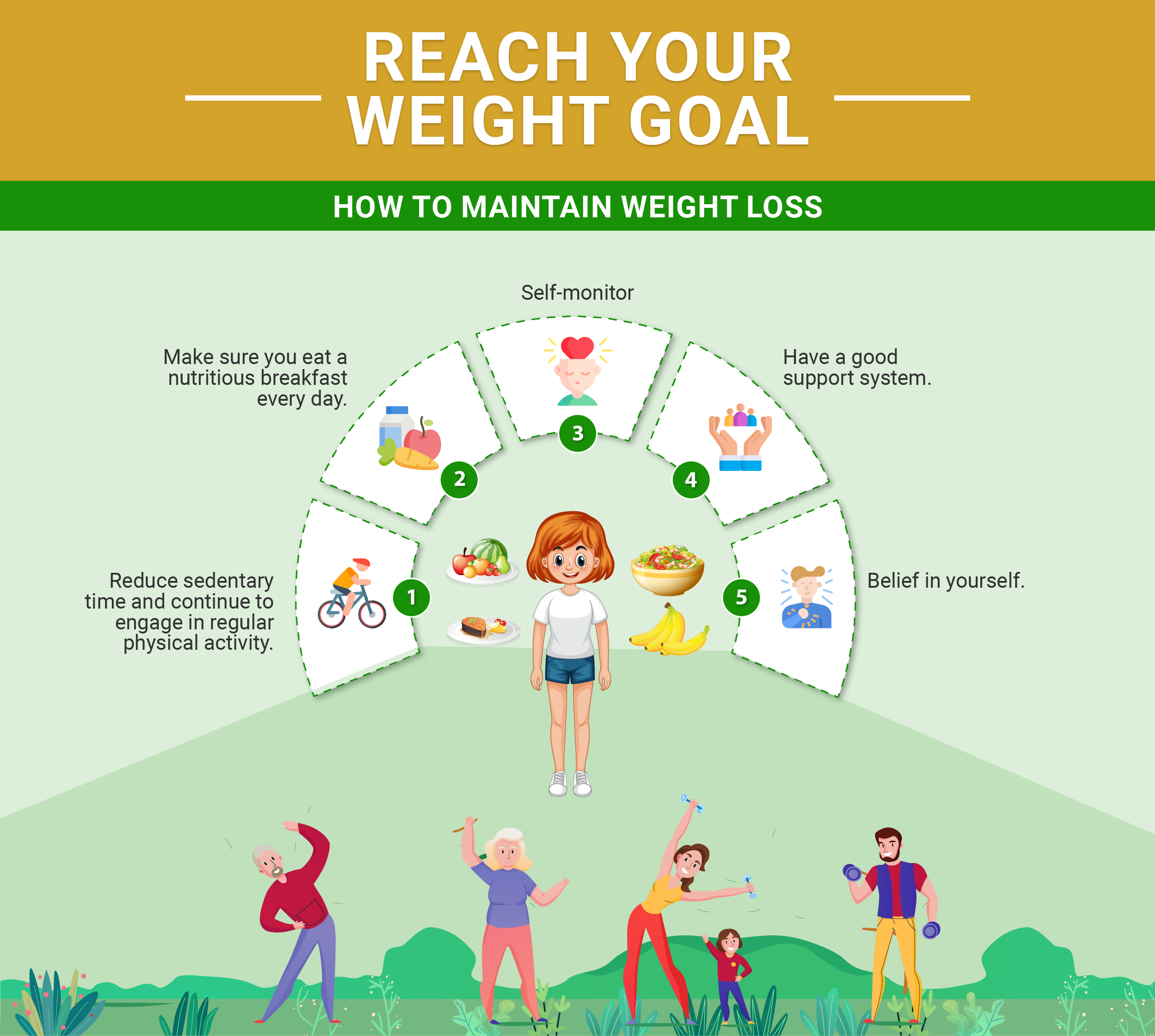The hard work you put into eating healthy and exercising regularly has paid off - you're at your goal weight and feeling great! What's next? What are your methods for maintaining a healthy weight? Losing weight can be challenging, but keeping it off can be even harder. There is still hope after a weight loss effort, even though many regain weight afterwards. Losing weight and keeping it off has proven successful for many people. Our understanding of maintaining weight loss has been enhanced by resources such as the National Weight Control Registry (NWCR). Find out how by reading on.
To understand why maintaining weight loss is difficult, it's important to understand why losing weight is difficult. Our bodies respond negatively to weight loss efforts when we lose weight. We experience an increase in hunger hormones, a decrease in fullness hormones, and a slowing in our metabolism. Diets low in calories and high in protein are harder to adhere to when appetite hormones are changing. As a result, fewer calories are burned due to a slower metabolism. In recent studies, scientists found that these changes last even after weight loss efforts, highlighting the importance of avoiding fad diets and focusing on sustainable lifestyle changes.

According to data from the NWCR and clinical trials, most people who maintain weight loss continue to participate in regular physical activity for an hour each day. As a result, there is likely to be a double benefit. Physical activity counteracts some of the reduction in metabolic rate caused by weight loss by burning more calories. Secondly, regular exercise boosts metabolism by maintaining fat-free mass (lean muscle). According to research, those who maintain their weight loss have higher levels of fat-free mass.
Maintaining weight loss requires eating a generally healthy diet. Yet it may surprise you that weight loss maintainers usually eat breakfast. Hence, maintaining weight loss involves eating breakfast regularly, eating fruits and vegetables in abundance, and limiting consumption of unhealthy foods and sugar-sweetened beverages.
Maintaining weight loss and losing weight is made easier with self-monitoring. According to research, people who monitor their food intake and weight have a greater chance of maintaining their weight loss. Even stepping on the scale once per week or monitoring what you eat can help you keep your weight under control. This doesn't mean you have to count every calorie you consume for the rest of your life. Tracking your food again can be beneficial if the number has started to trend upwards.
The people who helped you get where you are, whether family, friends, coworkers, healthcare providers or a group on social media, should be kept in the loop. Whether at the beginning or end of your weight loss journey, board certified Obesity Medicine Specialists and Registered Dietitians are here to help you. Patients are encouraged to continue meeting with their team to maintain weight loss. Even though we love celebrating our successes, we can be most helpful when bumps in the road arise. Please don't hesitate to contact your support system during these times.
Maintainers of weight loss maintain a healthy diet, exercise regularly and believe in their abilities. Although changing our mindset isn't something we can do with a snap of our fingers, it's an important step. Our perception of certain situations and responses to them are affected by our self-confidence. The journey to weight loss is likely to have setbacks along the way. You should develop strategies to deal with difficult situations or life changes that may cause you to feel thrown off. Celebrate your success every time you overcome them. It will build your confidence and make you more resilient when it happens again.
Weight loss maintenance is no different from weight loss in that there is no one-size-fits-all approach, and what works for you is what matters most.

It's important to get out of the "diet" mindset when trying to lose weight. The term implies that weight loss can't last forever. It's best to make healthy and sustainable nutritional changes. If you want to maintain your weight loss, you must eat healthfully most of the time. This does not mean you can never eat less healthful food again. Still, you will most of the time need to eat healthfully. Regular fruit and vegetable consumption, lean protein, healthy fats, and limiting sugar-sweetened beverages are all important. In addition to preventing weight gain, eating healthfully can reduce the risk of chronic diseases such as diabetes, high cholesterol, heart disease, and cancer.
Lasting Weight Loss: Is It Possible?
It is possible! The key is to maintain healthy habits consistently. Making changes that you can continue for the rest of your life is crucial from the start of your weight loss journey. During a holiday or vacation, the scale may rise a few pounds after overindulging, but self-monitoring can help. To lose weight again, you should implement the changes you know work when weighing yourself. Despite doing everything you think will help you lose weight, if you can't maintain your weight loss, you may need to meet with an obesity medicine specialist to discuss treatment options. After weight loss, several physiological changes contribute to weight gain. It's not your fault if you have difficulty sticking to a healthy diet; some tools can assist.
Give Weight Loss Coach a try if you want medical care for weight management and a personalised plan to help you lose and maintain weight! We offer a comprehensive weight loss program, which uses nutrition, physical activity, mindset changes, and medication, if necessary, as part of our insurance-covered medical weight loss program.

Comments